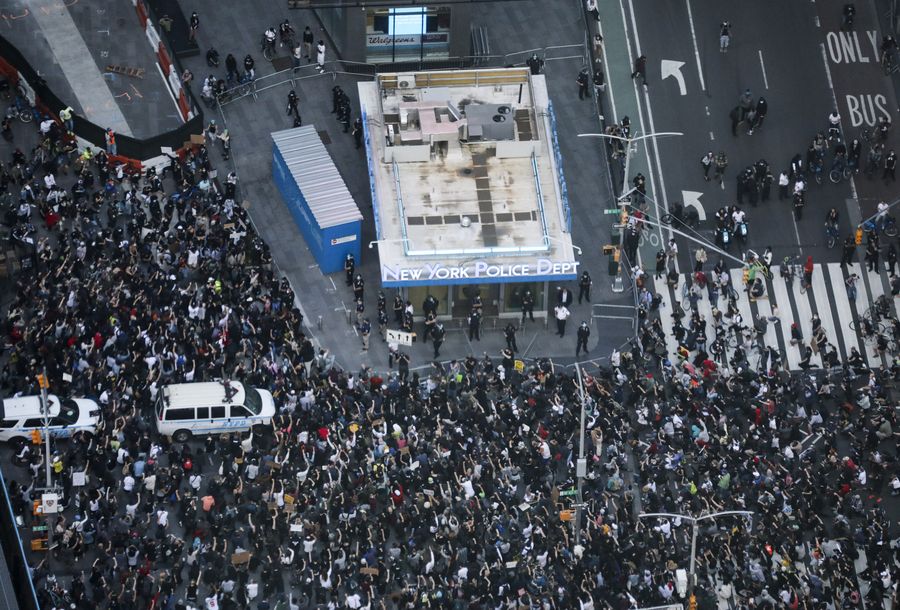Time to end racist police violence in America
- By Sajjad Malik
 0 Comment(s)
0 Comment(s) Print
Print E-mail China.org.cn, June 7, 2020
E-mail China.org.cn, June 7, 2020

At least 40 American cities have been forced to impose a curfew due to violent protests after death of George Floyd in police custody in Minneapolis.
The footage of his last moments are gruesome to say the least, and behavior of the police officers at the scene totally unacceptable. The death acted as a trigger and protests spread like wildfire.
Yet, it needs to be stressed that this is not the first time a black man has been on the receiving end of police brutality in the U.S. There is a long history of such "crimes."
Repeatedly, unlawful treatment of black people by police has been witnessed, leading to occasional violent demonstrations. Yet, every effort to change it has been futile.
The problem actually goes back to the early days of slavery, with the system of "slave patrols" originating in South Caroline in the 1700s to implement laws related to captivity. Despite the civil rights movement during the 1950s and 1960s, which finally ensured the rights and interests of black people to some degree, discrimination and racism have not been eliminated from American law enforcement.
The Washington Post wrote in a recent article that "the images of police attacking black activists during the 1963 Birmingham campaign and the 1965 Selma-to-Montgomery marches exposed the racist roots of American policing, and how such practices targeted men, women and children."
Why does the U.S. tolerate such a brutal police attitude towards a large segment of population? Why is it that police officers involved in violence against blacks are seldom charged or punished? These and many other questions remain unanswered.
Reaction of top leaders after every incident of violence against blacks is highly stereotyped, often limited to statements calling for justice. President Donald Trump is no different. Indeed, his choice of words – "when looting starts, shooting starts" – has sparked debate as to whether he was implicitly promoting violence. Words can be just as sharp as weapons and should be used carefully.
Policing is not just a legal activity, but a social service. Saving innocent lives should be the first obligation.
Surely, instead of just paying lip service to the deep-rooted issue of racism, time has come to introduce exhaustive reforms to completely deal with the existing systemic racism across American police forces so as to bring permanent closure to this grim chapter.
Given the challenges of the COVID-19 pandemic, U.S. is facing a daunting task to control the spread of the virus and quell the protests at the same time.
Mass demonstrations can make it more difficult to control the viral contagion. The dilemma is that the continuous protests may raise the number of new infections to new heights, while using force to quell the unrest may result in more violence.
In such scenario, it is difficult to determine if the protests are a bigger challenge or the coronavirus.
Sajjad Malik is a columnist with China.org.cn. For more information please visit:
http://m.91dzs.com/opinion/SajjadMalik.htm
Opinion articles reflect the views of their authors, not necessarily those of China.org.cn.
If you would like to contribute, please contact us at opinion@china.org.cn.





